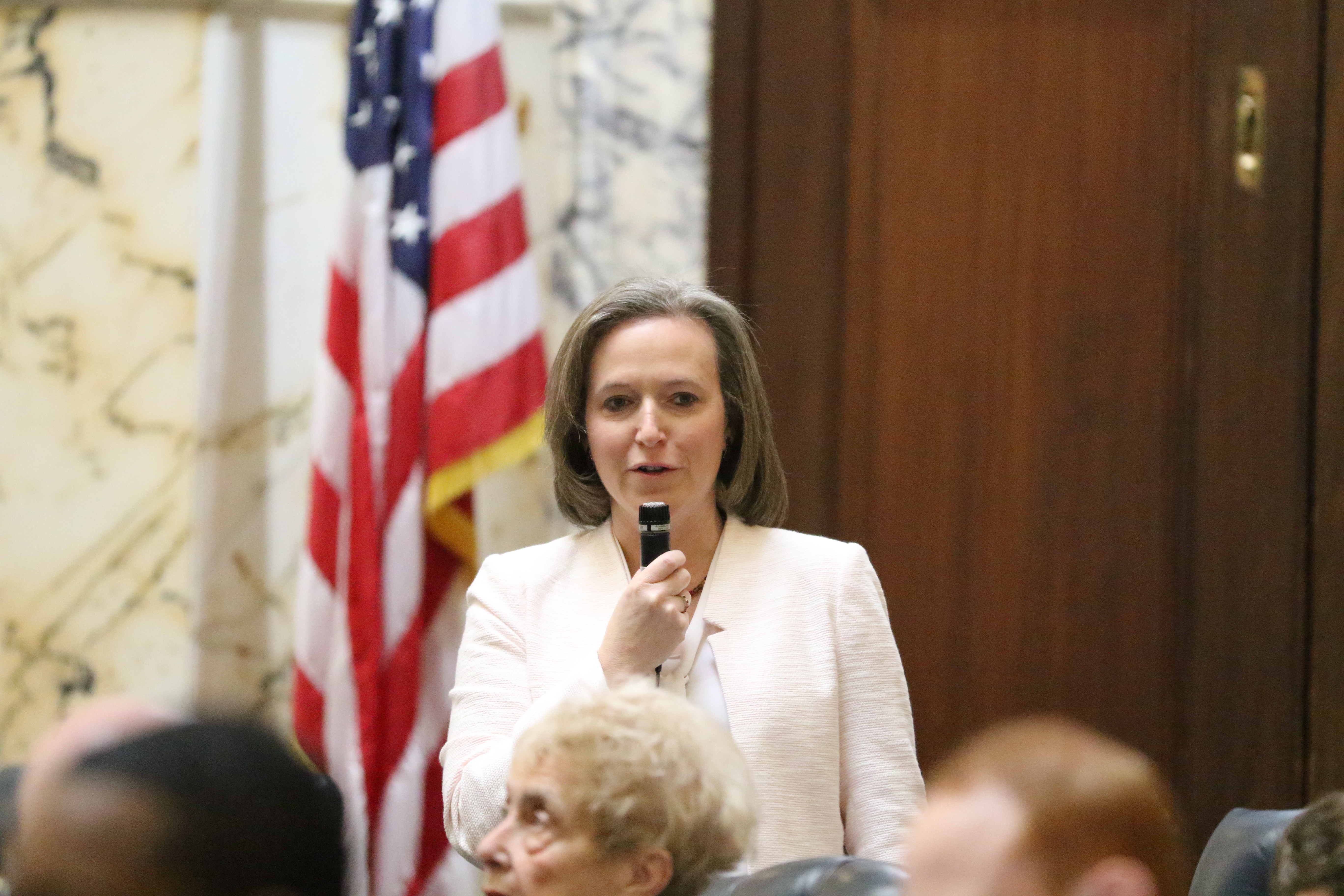UPDATE: This constitutional amendment died without a vote in a Senate committee after a March 27 hearing. There will already be one constitutional amendment related to gambling on the November ballot establishing a “lockbox” to assure that all casino revenues are used for education funding.
By Glynis Kazanjian
For Maryland Reporter
Bipartisan legislation calling for Maryland voters to weigh in on legalized sports betting in the state sailed through the House Thursday with a vote of 124 to 14.
The bill, HB1014, sponsored by Del. Frank Turner, D-Howard, would place a law to allow sports betting at Maryland casinos and horse racing tracks on the November ballot through a voter referendum on a constitutional change.
Like many other states, it is currently against the law in Maryland to bet on sporting events.
But before Marylanders can vote on the initiative, the U.S. Supreme Court — which has a case pending before it on the issue — or the U.S. Congress, must take action to make it lawful.
Currently, only Nevada and Delaware authorize sports gambling in their states and Montana and Oregon may offer it. The four states were grandfathered in when the federal law — the 1992 Professional Amateur Sports Protection Act (PASPA) — was enacted. The law bans government entities from sponsoring or operating gambling involving professional or amateur athletes. The only exception in Maryland is online fantasy league sports betting.
The case, Christie v. National Collegiate Athletic Association, is due to be ruled on by the Supreme Court by June.
“Conventional wisdom is that the Supreme Court is going to overturn past congressional decision making,” House Ways and Means Committee Chair Anne Kaiser, D-Montgomery, a co-sponsor of the bill, said Thursday on the House floor.
Racetracks, casinos support it
In theory, some lawmakers say sports gambling in Maryland could be a financial boon to the state.
A bill sponsored by Del. Jason Buckel, R-Allegany, would direct 80% of the licensing fees – $250,000 per facility – to the state’s education trust fund. The Department of Legislative Services estimates annual gaming revenues at $33 million.
And representatives from the horse racing industry say the influx in revenue could save their industry.
“Most neighboring states have passed legislation or plan to approve similar legislation,” said Sal Sanatra, Maryland Jockey Club president, in testimony before the House Ways and Means Committee in February. “We feel to be competitive with those other venues, we’d like to have it. It’s a natural fit.”
Nine entities in Maryland are expected to seek licensing – Maryland’s six casinos: Hollywood Casino Perryville, Casino at Ocean Downs, Casino at Ocean Downs , Live! Casino & Hotel, Rocky Gap Casino Resort, Horseshoe Casino Baltimore and MGM Washington Harbor and the state’s three horse racing tracks – Pimlico Race Course, Rosecroft Raceway and Laurel Park.
Opposition
But opponents of the bill want voters to consider the negative effects of the legislation, which could affect the National Football League, the National Basketball Association, Major League Baseball and the National Collegiate Athletic Association.
“The bill is a little deceptive,” Del. Neil Parrott, D-Washington. “Why does the NCAA care? They don’t to see people betting on those games with a lot of money involved. [There] is the potential that students participating in the athletic events could throw the game or throw certain parts of the game in order to help their friends or themselves make money based on the betting. It would certainly take a lot of the purity out of the sport.”
Parrot said in Europe there is “micro betting” where people bet on individual plays.
“It’s very easy to throw the play,” he said. “We’re so connected right now. It’s a very dangerous precedent [to set].”
Even if the Supreme Court overturns PASPA, Parrot said he doesn’t think Maryland should get into the business of betting on college or professional sports.
“I’d like to see sports remain the way they are, especially at the college level.”
So far Delaware offers sports betting, Pennsylvania has passed legislation that would allow it, New Jersey wants it and New York is actively considering it, Sanatra said.
“This is an opportunity for the state to get in line and get ready in the event the PAPAS Act is declared unconstitutional,” Sanatra said. “It’s something that’s going to happen nationally.”
The Senate Budget and Taxation Committee had a hearing March 7 on its own version of a sports gambling referendum, SB836, sponsored by Sen. Nancy King, D-Montgomery, along with a majority of the committee.



Why do our elected officials pick and choose which bills the Maryland voters can/should be allowed to vote on? If it is okay to put one bill on the ballot, why not put ALL bills on the ballot and let the people choose for themselves? Could it be that our elected officials know that voting on certain bills themselves would show them in a different light to their constituents and more importantly the donors who fund them?